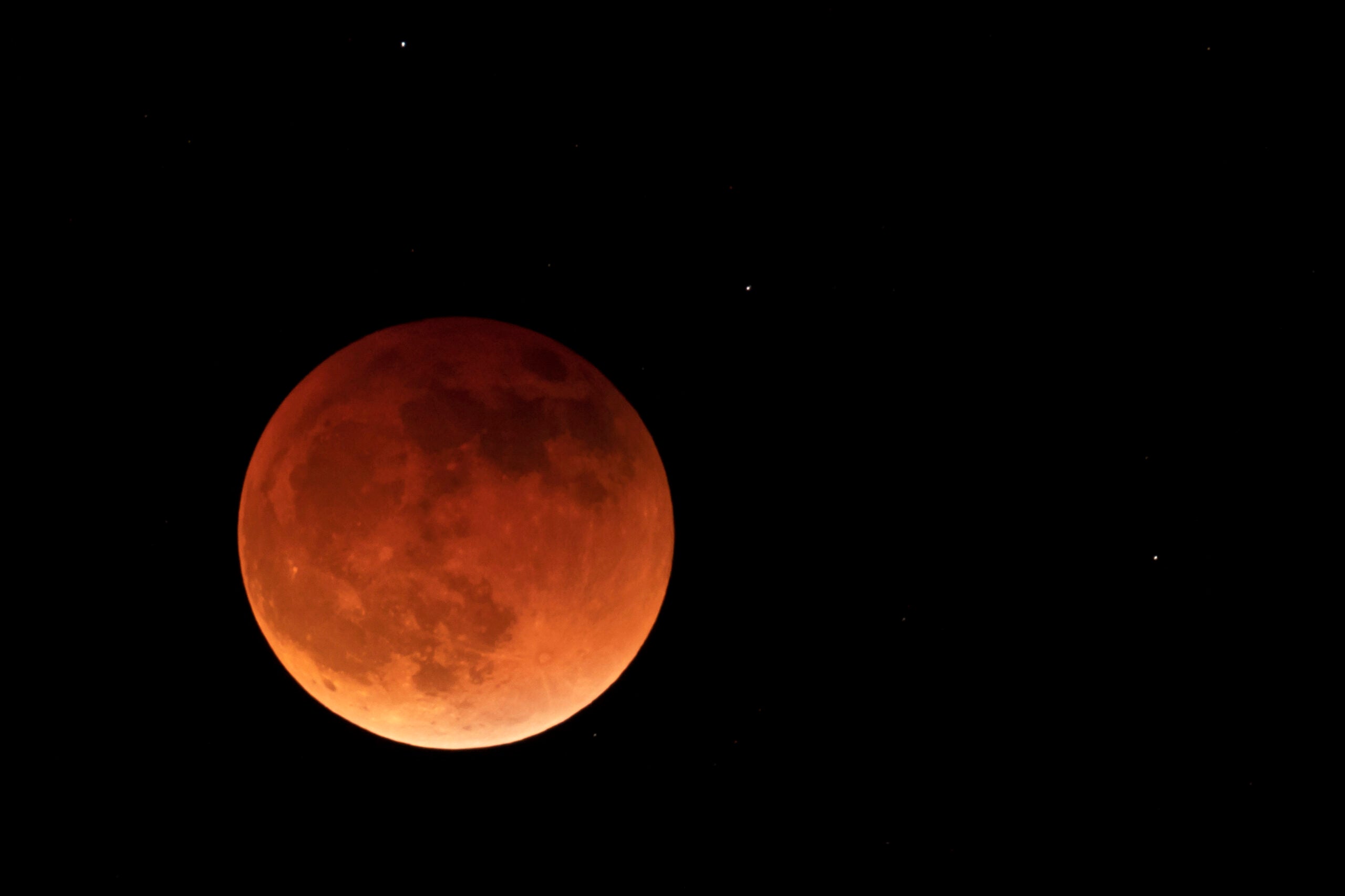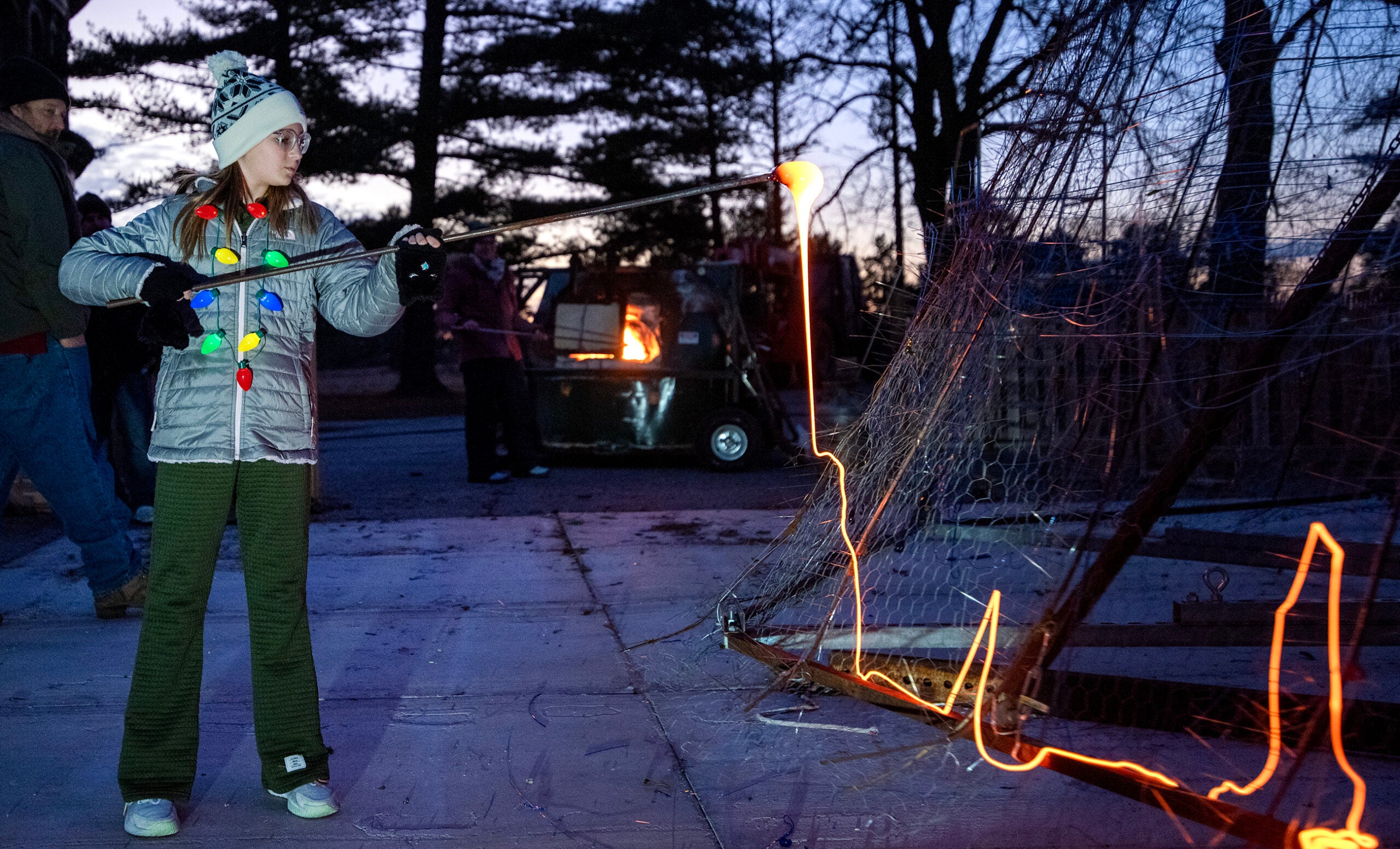For a little while Monday, the worries of the world gave way to wonder.
The total eclipse made its way across North America Monday afternoon, inspiring tens of thousands to travel to areas where a meeting of the moon and sun plunged the world into several minutes of darkness.
In Wisconsin, things were not so dramatic. But the partial eclipse visible here inspired watch parties and social media posts and prompted thousands of people to step outside, put on protective glasses and look to the sky.
Stay informed on the latest news
Sign up for WPR’s email newsletter.
“It’s a feeling of understanding that we’re a really small part of a gigantic universe,” said Dennis Kois, executive director of Yerkes Observatory. “Doing that with other people around you means something to a lot of people.”
The historic Yerkes Observatory in Williams Bay hosted more than 300 people. There were educational crafts and games, telescopes and experts to answer questions.
But the main event was up above, where at the height of the eclipse, about 90 percent of the sun’s light was blocked by the moon.
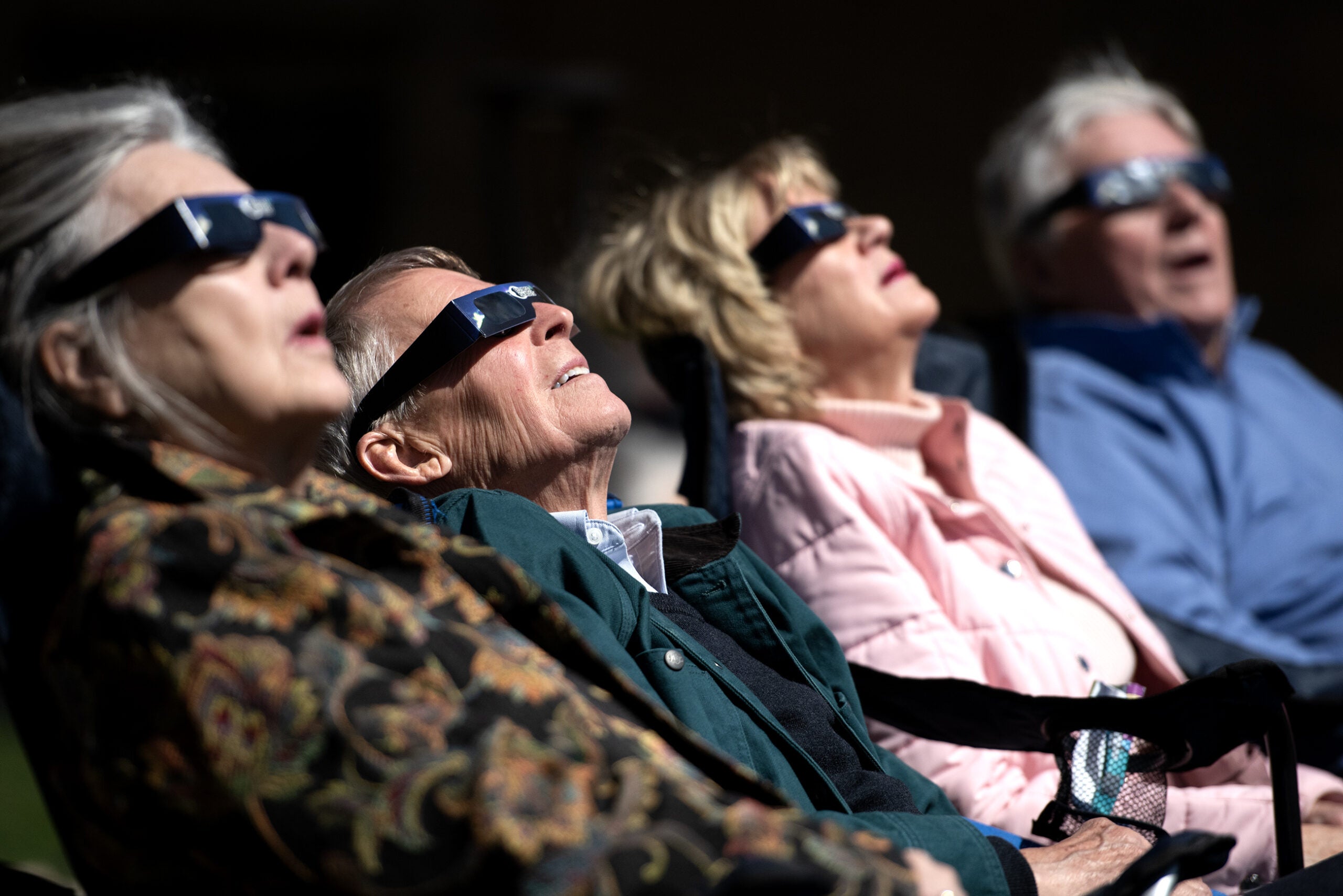
People young and old stretched out on the lawn looking up as the moon inched its way across the sun.
Some said it looked like the moon was eating the sun. Others saw what looked like a banana or a boomerang through their eclipse glasses.
David Shimomura traveled from Chicago to the observatory to watch the eclipse. He said there was a “buzz” among spectators on the lawn. He said it was a “sweet” example of building community.
“They’re just such weird, special, little things that being able to come to a place of science to see it instead of my backyard was a really nice opportunity,” Shimomura said.
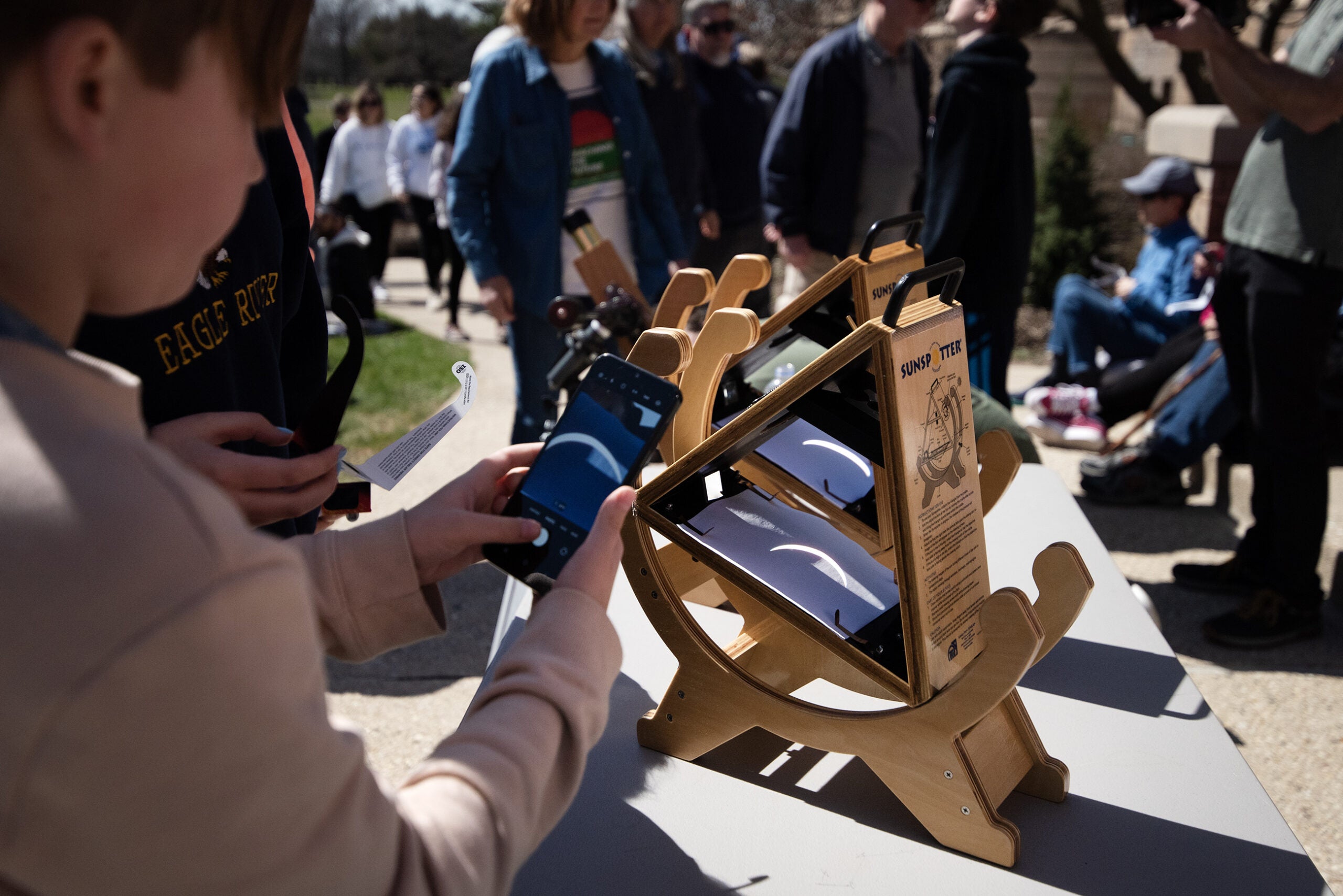
The sky darkened and it felt cooler
At peak coverage, people clapped in celebration.
Cindy Thota traveled from Muskego to watch the eclipse with friends. She said it felt eerie because she couldn’t hear any birds, the sunlight was less intense and it felt colder.
“This is the most historic place to watch it in Wisconsin, and it’s stunning. And there’s not a cloud in the sky, shockingly. So this was the place to come,” Thota said.
Yerkes Observatory, built in 1897, is home to the world’s largest refracting telescope. Famous scientists including Edwin Hubble studied at Yerkes. Albert Einstein visited in 1921.
Dorothy Washa- Riesing from Muskego said besides watching nature at work, a big takeaway for her was the comradery of it all.
“It’s sort of bring people together in this divided society right now,” Washa- Riesing said.
Her husband Tom noticed kids watching the eclipse alongside him. He suspects this will be the last solar eclipse he’ll see because of his age. He said it felt like passing the torch to the next generation.
“They have a lifetime of eclipses to chase after and observe. It’s kind of the beginning and the end in a way,” Tom said.
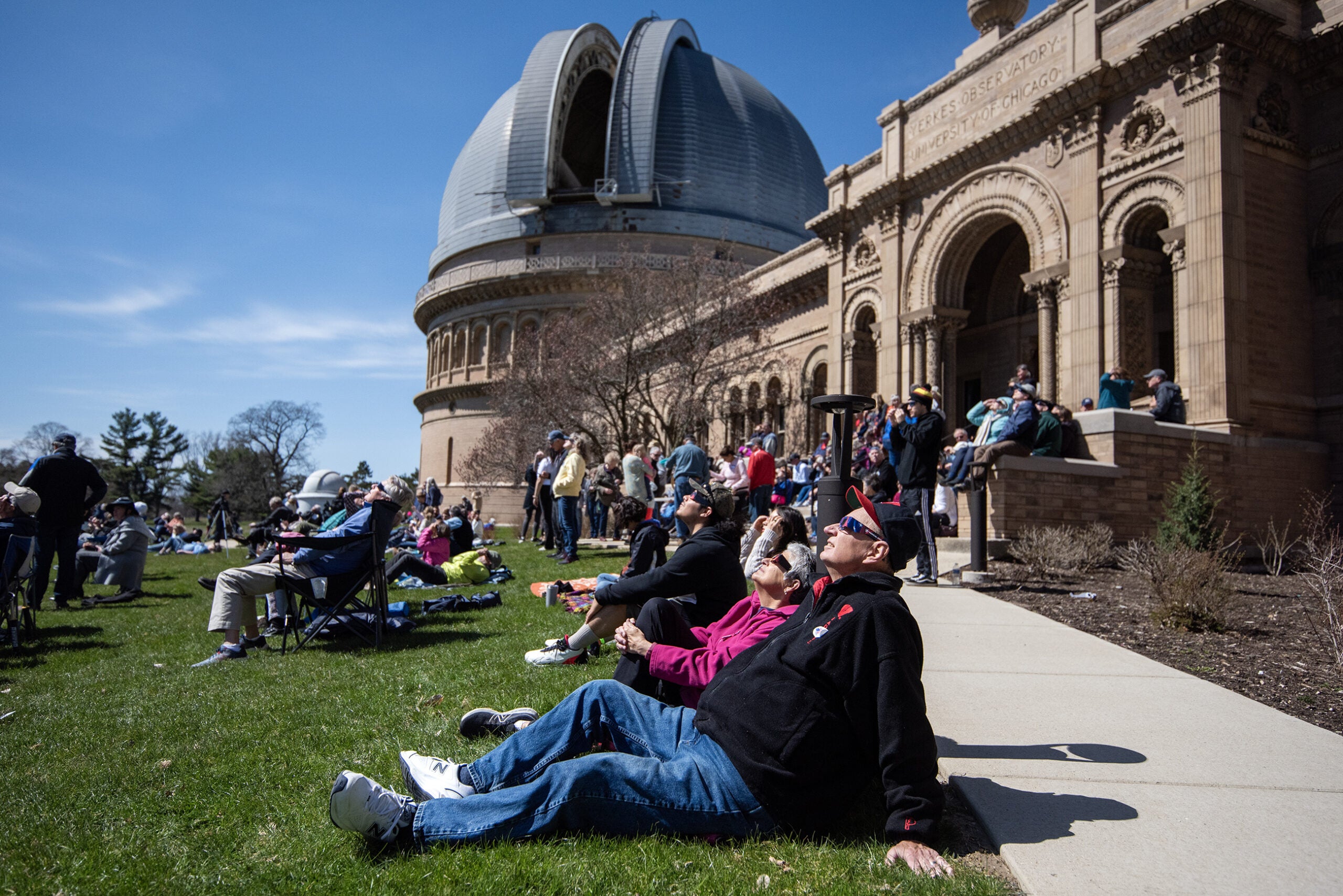
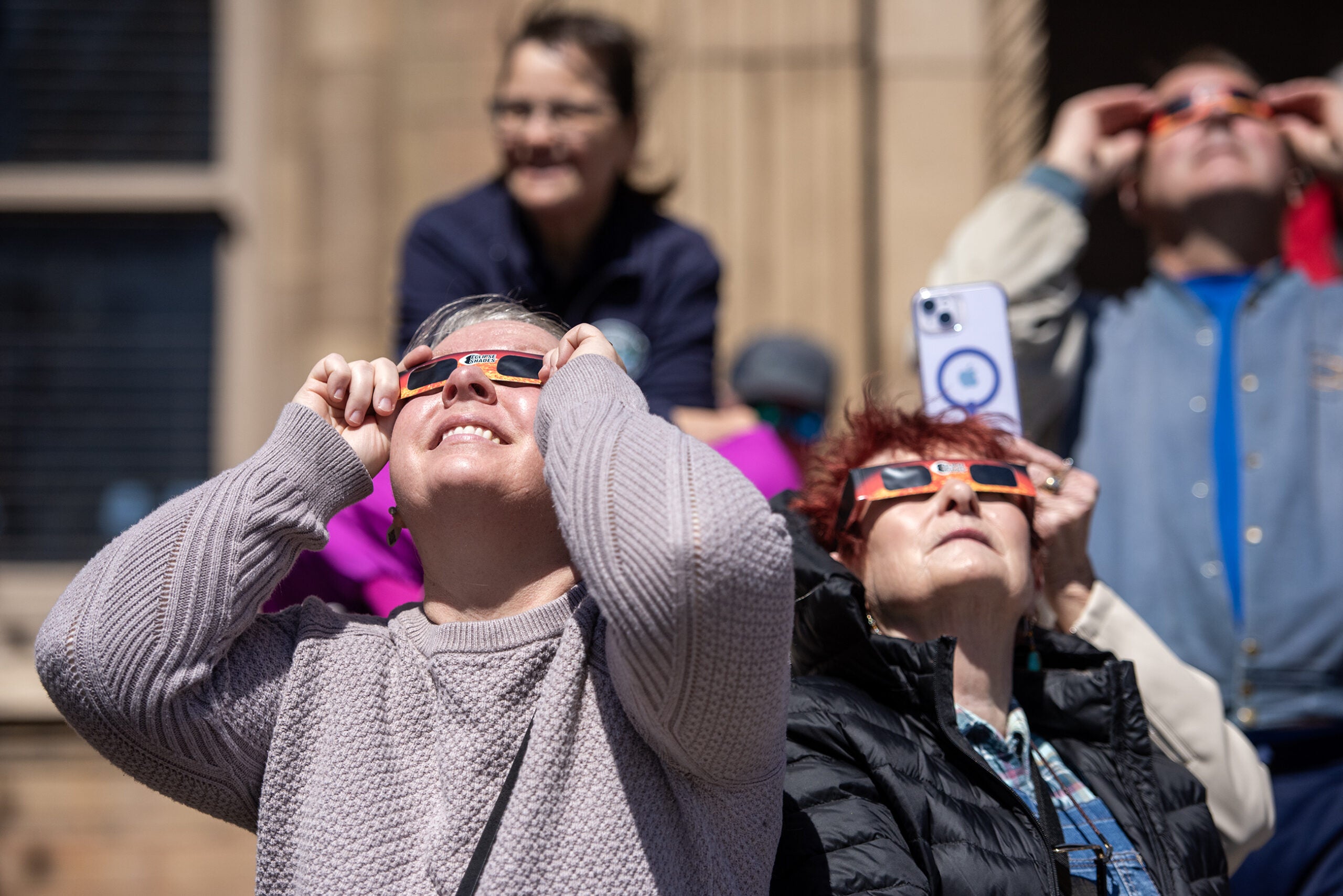
A result of a total solar eclipse from Texas to Maine
For some Wisconsinites, a partial solar eclipse wouldn’t do. Jim Head, president of The Northwoods Explorers of Space and Astronomy, watched the total solar eclipse from a Walmart parking lot in Maine. He was surrounded by hundreds of people who honked their horns in awe when the moment of totality came.
He said the sun’s corona, only visible in totality, was beautiful.
“Jaws just dropped,” Head said. “The detail of the definition was, on a scale of 1 to 10, about a 50.”
According to NASA, an estimated 31.6 million people live in the path of totality this year. Some predict up to 3 million more people traveled to catch a glimpse of it.
The U.S. won’t see an eclipse again for another 20 years.
That’s part of what made today special for 12-year-old Lucy Douglas. She left school early to watch the eclipse at the observatory with her family. She said she’s glad she got to see it for herself.
“It doesn’t happen very often, so it’s very rare and I feel like it’s cool that I’m allowed to see it. That I’m alive at this time,” Douglas said.
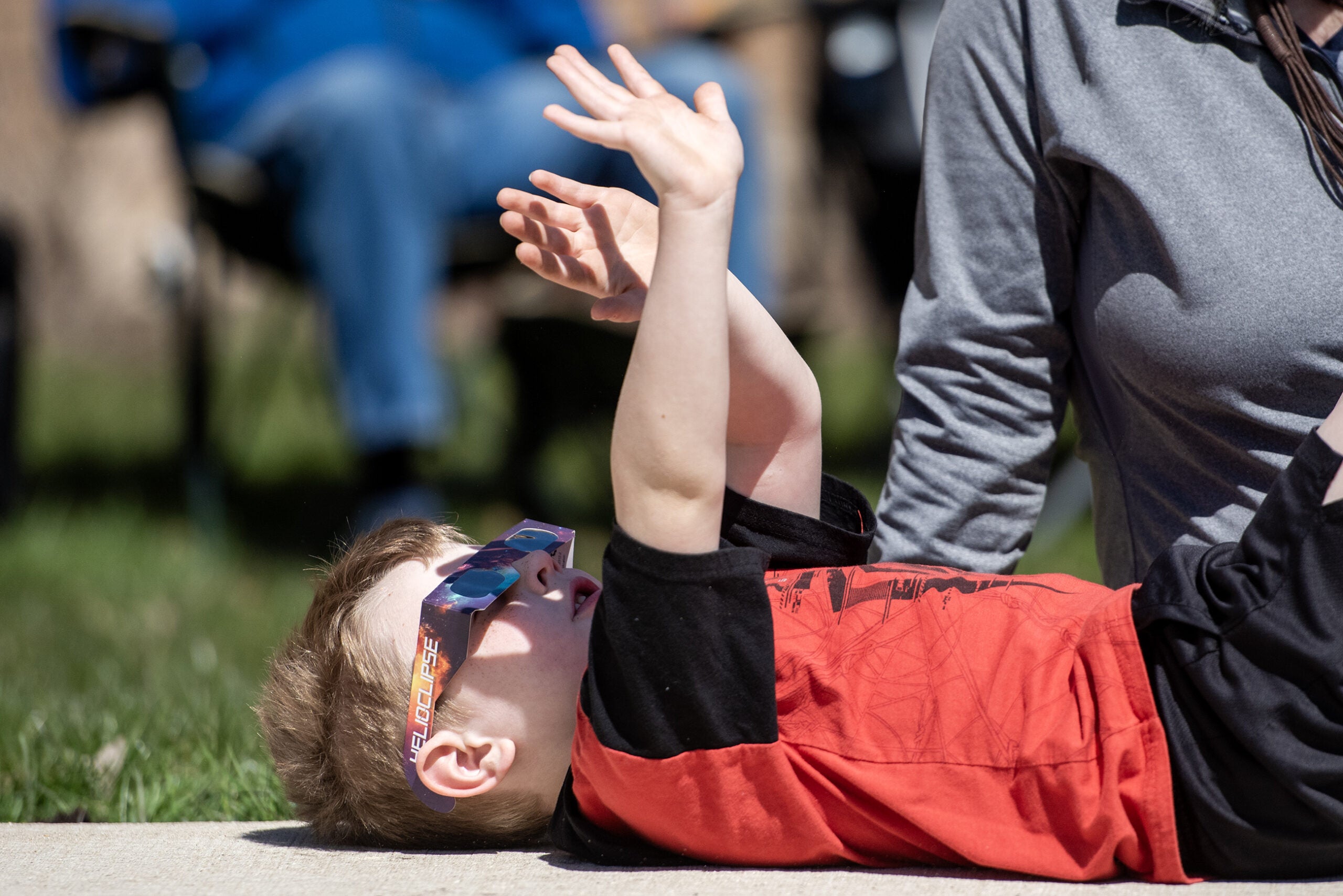
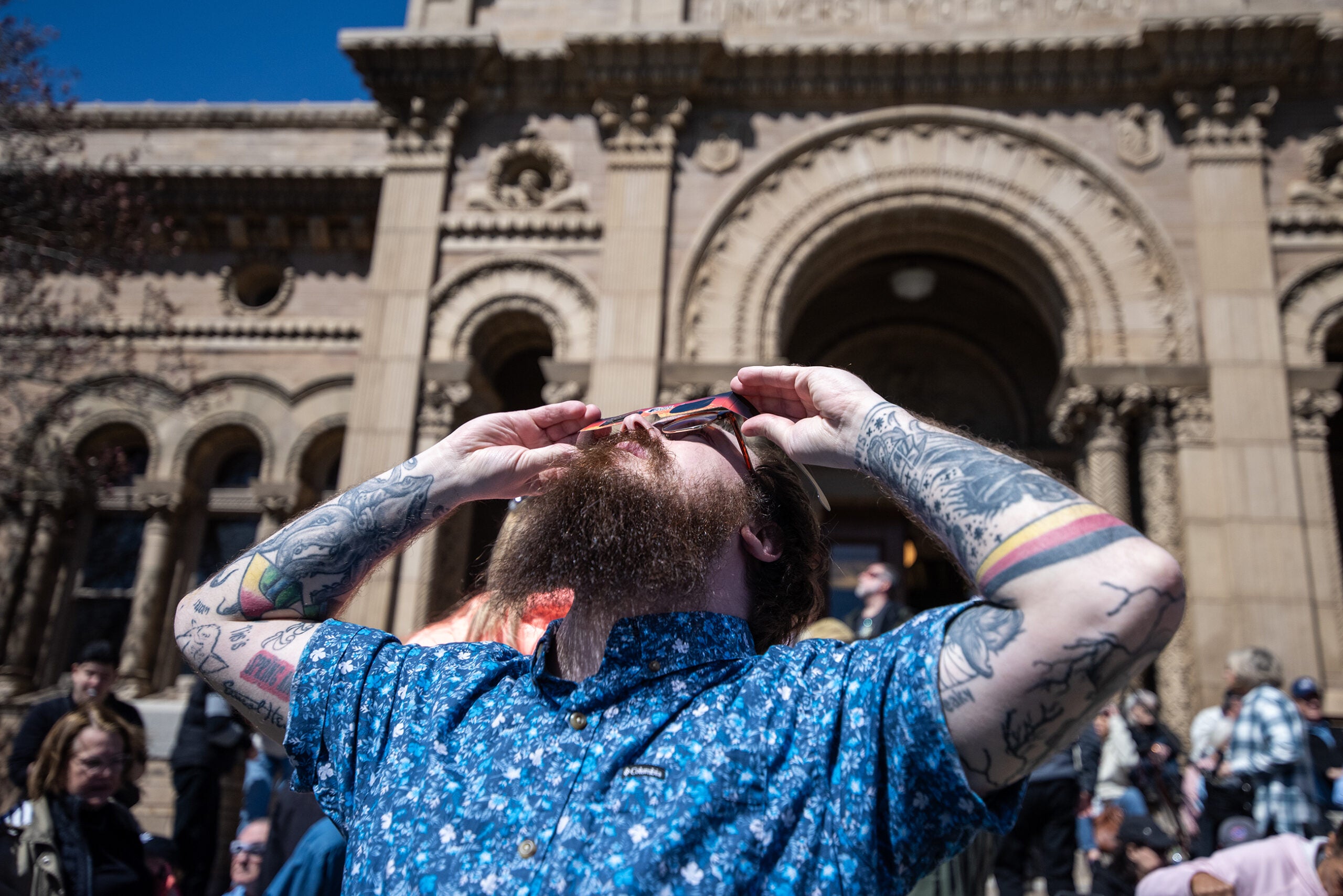
Wisconsin Public Radio, © Copyright 2025, Board of Regents of the University of Wisconsin System and Wisconsin Educational Communications Board.

